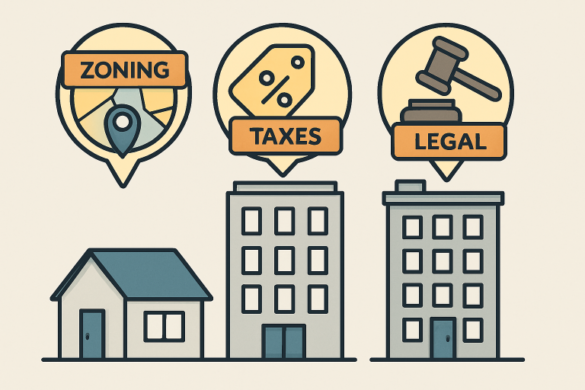Introduction
Stepping into the world of homeownership is a milestone filled with both anticipation and questions. For first-time buyers, the path from browsing listings to closing the deal can seem overwhelming, but breaking it down into manageable steps will ease your journey. Partnering with Germantown real estate experts The JudyMac Team ensures you have professional support and local market knowledge from day one. Their team can help streamline complex decisions and connect you with resources tailored for first-timers.
This guide covers this exciting transition from renting to buying, ensuring you understand each phase. With thoughtful planning and expert guidance, you’ll find confidence as you embark on one of life’s most rewarding achievements: buying your first home.
Assessing Your Financial Readiness
Budgeting and Savings
Evaluating your financial fitness is essential before you explore open houses or meet with lenders. Calculate your monthly income, anticipate ongoing expenses, and factor in a target amount for savings. Align your expectations with what you can realistically afford, accounting for not just the mortgage, but also property taxes, homeowners insurance, and home maintenance.
Credit Score Importance
Your credit score will significantly influence your mortgage rate and lending opportunities. Obtain your credit report early and address any discrepancies or debts. A stronger credit score opens doors to more favorable loan terms, potentially saving you thousands over the life of your mortgage.
Down Payment Planning
A larger down payment—ideally 20% or more—reduces your loan principal and monthly payments. For many, reaching that threshold takes time, but even modest increases in your down payment can improve your financial standing and provide negotiating power with lenders.

Understanding the Real Estate Market
Researching Market Trends
The real estate market fluctuates with economic cycles. Stay informed about trends such as average home prices, inventory levels, and the typical time properties spend on the market. An awareness of current conditions will empower you to make timely and competitive decisions. For the latest updates and reports, consult the National Association of Realtors’ research and statistics.
Property Values
Investigate median sales prices in your desired area. Review historical price data to spot upcoming neighborhoods and gauge how quickly homes appreciate. This will help you set a realistic budget and maximize your future investment return.
Choosing the Right Location
Neighborhood Amenities and Priorities
The correct location dramatically impacts your daily life and long-term satisfaction. Consider proximity to your workplace, quality schools, parks, and local shopping or dining options. A neighborhood with accessible amenities will enhance your living experience and help your property retain value.
Anticipating Future Growth
Look beyond current conditions and examine planned developments or infrastructure improvements. These projects can increase property values and lead to construction noise or congestion. Talk with local real estate professionals and city planners for insight into upcoming changes in your preferred areas.
The Importance of Home Inspections
Identifying Issues
A thorough home inspection is a non-negotiable step in the buying process. Inspections can uncover structural problems, aging systems (such as HVAC or roofing), and hazards you might otherwise miss. This knowledge lets you weigh the property’s value and avoid expensive surprises post-purchase.
Using Inspections to Negotiate
You can negotiate repairs or a price reduction with the seller if the inspection identifies issues. Addressing these points upfront protects your investment and provides peace of mind about your purchase.
Navigating Mortgage Options
Types of Loans
Understanding the range of mortgage products is fundamental. Fixed-rate mortgages offer predictable payments, while adjustable-rate options may present lower initial rates but change over time. Factor in your financial plans, risk tolerance, and how long you anticipate staying in your first home. For a detailed breakdown, refer to the Consumer Financial Protection Bureau’s guide on mortgage options.
Pre-Approval Advantage
Before making an offer, seek pre-approval from a lender. A pre-approval letter demonstrates to sellers that you are a committed, qualified buyer and may give you an edge in competitive markets.
Working with Real Estate Professionals
Choosing Your Agent
A veteran real estate agent is invaluable for first-time home buyers. Look for someone who deeply understands your chosen area and communicates clearly. A skilled agent will guide you through showings, negotiations, and paperwork.
Legal Guidance
In some markets, hiring a real estate attorney can safeguard your interests regarding contracts, disclosures, and the closing process. Their expertise helps you navigate legal jargon and avoid costly misunderstandings.
Making an Informed Offer
Comparative Market Analysis
Your agent will provide a comparative market analysis (CMA) that compares recent local sales to assess fair market value. With this data, you can formulate a competitive offer without exceeding your budget.
Contingencies
Savvy buyers incorporate contingencies into their offers—conditions that protect your interests, such as passing inspection or securing financing. These stipulations provide exit options if unexpected obstacles arise.
Preparing for Closing
Final Walkthrough
Before finalizing your home purchase, a walkthrough ensures the property is in the agreed-upon condition and that all requested repairs are complete. Address any discrepancies with your agent immediately.
Understanding Closing Costs
Prepare for additional expenses beyond the down payment, including loan origination fees, title insurance, property taxes, escrow fees, and homeowners insurance. Review your loan estimate and closing disclosure for clarity and budget accordingly.
Conclusion
Buying your first home is a significant life event and presents many opportunities for personal growth and financial stability. While the process can appear complex, education and preparation transform uncertainty into informed decision-making. By following these essential tips and seeking the right partnerships, you’ll move confidently from house-hunter to homeowner, enjoying the rewards for years.









